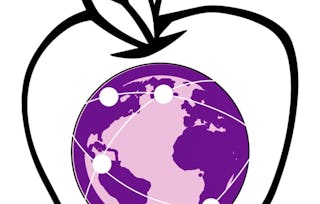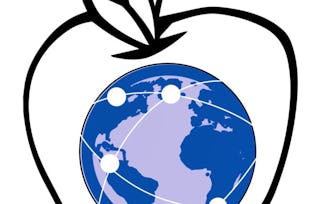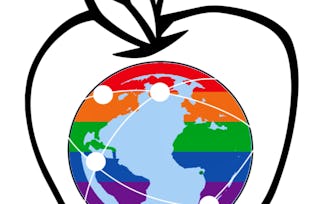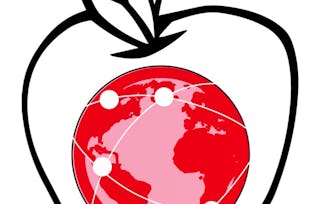In this course you’ll focus on how constant data collection and big data analysis have impacted us, exploring the interplay between using your data and protecting it, as well as thinking about what it could do for you in the future. This will be done through a series of paired teaching sections, exploring a specific “Impact of Computing” in your typical day and the “Technologies and Computing Concepts” that enable that impact, all at a K12-appropriate level.

Teaching Impacts of Technology: Data Collection, Use, and Privacy

Teaching Impacts of Technology: Data Collection, Use, and Privacy
This course is part of Teaching Impacts of Technology in K-12 Education Specialization

Instructor: Beth Simon
3,335 already enrolled
Included with
10 reviews
Skills you'll gain
Details to know

Add to your LinkedIn profile
9 assignments
See how employees at top companies are mastering in-demand skills

Build your subject-matter expertise
- Learn new concepts from industry experts
- Gain a foundational understanding of a subject or tool
- Develop job-relevant skills with hands-on projects
- Earn a shareable career certificate

There are 5 modules in this course
Welcome! Are you interested in teaching about the impacts of your personal data in the digital world? To learn more about the computation and computing concepts that underlie the technologies using that data? We'll be using a problem-based approach to explore interesting ways to teach concepts of networks and the internet, data and analysis, and even algorithms and data representation. Finally, we'll read a chapter from a children's fiction book -- "The Secret Code Menace" and identify some computer science learning outcomes for that chapter.
What's included
2 videos3 readings1 assignment1 discussion prompt
Why is it that when you are shopping for an item on one website, you start seeing ads for it other in other places? How do websites know (and quite well) what products and services to recommend their customers and users? We'll look at how the internet has evolved to personalize people's experiences while online. Then to finish up this week, we will learn about how cookies and web servers work, as well as how HTTPS keeps connections secure.
What's included
7 videos5 readings2 assignments6 app items2 discussion prompts
This week we'll look at aspects of our personal data such as -- when we we do not want it used, how we can keep it safe, and what control we have. In this Technology Exploration, we'll learn about ciphers, hashing, cryptography, and encryption. Also, do you know the difference between the "deep" web and the "dark" web? (You will know by the end of this week!)
What's included
5 videos8 readings2 assignments1 app item2 discussion prompts
So far we have learned about data collection and privacy. Now we will spend the week covering some ways that data is used, so we must introduce big data. Along with our exploration of this progressive concept, we will help you connect the use of big data to machine learning though an activity designed to guide your understanding in a fun way!
What's included
4 videos3 readings2 assignments4 app items
Next we'll let you choose what you want to explore around "impacts of computing" for the technologies we've explored in this world. Along with that, we'll introduce another "Formative Classroom Assessment Technique" (FACT) and have you practice how you would use this in the classroom. For our pedagogical focus, we'll look at how retrieval practice helps you learn far more effectively than "re-studying" and how to define the learning objectives for a given learning activity using Bloom's taxonomy. Finally, you'll get to read a short chapter from a children's fiction book "The Secret Code Menace" and identify for yourself what kids can learn from reading it!
What's included
6 videos5 readings2 assignments1 app item1 discussion prompt
Earn a career certificate
Add this credential to your LinkedIn profile, resume, or CV. Share it on social media and in your performance review.
Instructor

Offered by
Explore more from Education

University of California San Diego

University of California San Diego

University of California San Diego

University of California San Diego
Why people choose Coursera for their career

Felipe M.

Jennifer J.

Larry W.

Chaitanya A.
Learner reviews
- 5 stars
90%
- 4 stars
0%
- 3 stars
0%
- 2 stars
0%
- 1 star
10%
Showing 3 of 10
Reviewed on Jun 21, 2021
This course is very nice, contents and videos are too good.

Open new doors with Coursera Plus
Unlimited access to 10,000+ world-class courses, hands-on projects, and job-ready certificate programs - all included in your subscription
Advance your career with an online degree
Earn a degree from world-class universities - 100% online
Join over 3,400 global companies that choose Coursera for Business
Upskill your employees to excel in the digital economy
Frequently asked questions
How does Amazon know what to suggest you buy? In this course you’ll explore how collection and analysis of our personal data impacts our technology use -- including concerns about our data privacy. You’ll explore underlying technical concepts around cybersecurity and machine learning that contribute to both the pros and cons of our personal data use. After successfully completing this course you will be able to:
[1] Discuss current ways in which personalized data impacts how we “see” things on the internet and ways in which companies are using our data.
[2] Explain key aspects of web technology responsible for collecting, managing and analyzing our data, including internet design issues (cookies, secure web transfer protocols, DNS, deep and dark web), cryptography (ciphers, hashing, encryption), and machine learning and AI (neural networks, recommender systems, speech recognition).
[3] Enact pedagogical knowledge in computer science-specific contexts, including retrieval-based learning, learning with simulators, and creating learning objectives. You’ll explore how one might use a “fun” children’s fiction book for teaching computing concepts.
Yes! This course is designed as component of a Specialization that is 1 of a set of 4 Specializations (all will be offered on Coursera) that will support the requirements of the California Supplementary Authorization. Additionally, the Specialization may support credentialing or authorization in other states. However, most states require a transcript from an accredited institution of higher education. See the FAQ question on “Will I earn university credit” to find out how to get such a transcript.
Yes, you can earn UCSD credit for completing this course, but only by completing the full Teaching Impacts of Technology in K-12 Education Specialization. In addition, you will need to (1) Enroll in an additional UCSD Extension course before completing the capstone ($500) and (2), complete part of the capstone project via an online proctoring service. After this is done, your Specialization course grades will be accumulated and a transcript with your final grade (both letter grade or pass-only supported) will be issued from UCSD with 4 graduate-level units. These are eligible to count towards the California Supplementary Authorization.
More questions
Financial aid available,

